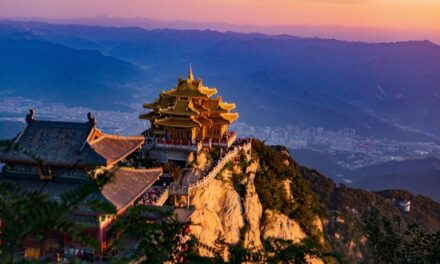Hinduism is one of the world’s oldest religions, with no single founder. It is a complex faith that encompasses a variety of beliefs, practices, and traditions centered around concepts like dharma (duty), karma (action), and moksha (liberation).
Key Beliefs
- Polytheism and Monotheism: Belief in many gods and goddesses, but all are seen as different aspects of the ultimate reality, Brahman.
- Karma: The belief that actions in this life affect one’s fate in future lives.
- Dharma: A set of duties and ethics that one must follow according to their position in life.
- Reincarnation (Samsara): The cycle of birth, death, and rebirth, where the soul is reborn until it reaches enlightenment.
- Moksha: Liberation from the cycle of reincarnation, achieved through self-realization and unity with Brahman.
Sacred Texts
- Vedas: The oldest and most authoritative scriptures of Hinduism, consisting of hymns, rituals, and spiritual knowledge.
- Upanishads: Philosophical texts that explore the nature of the soul (Atman) and its relationship to Brahman.
- Bhagavad Gita: A part of the epic Mahabharata, it contains teachings on dharma and the path to spiritual liberation.
- Ramayana and Mahabharata: Ancient epic stories that convey moral and spiritual lessons.
Major Deities
- Brahman: The supreme, universal spirit that is the source of everything.
- Brahma: The creator god, part of the Hindu trinity.
- Vishnu: The preserver god, who maintains cosmic order and has many incarnations (avatars) like Rama and Krishna.
- Shiva: The destroyer and transformer god, responsible for the cycle of birth and death.
- Goddesses: Female deities, such as Lakshmi (goddess of wealth), Saraswati (goddess of wisdom), and Durga (goddess of power).
Core Practices
- Yoga: A spiritual and physical practice aiming to achieve self-discipline, inner peace, and spiritual growth.
- Puja: A ritualistic offering and worship of deities, often done at home or in temples.
- Meditation: A practice to achieve mental clarity and spiritual enlightenment.
- Pilgrimages: Traveling to holy sites, such as Varanasi, Rishikesh, and the Ganges River, for spiritual merit.
- Festivals: Celebrating various deities and seasons with vibrant festivals like Diwali, Holi, and Navaratri.
Major Holidays
- Diwali: The festival of lights, symbolizing the victory of light over darkness and good over evil.
- Holi: A colorful spring festival celebrating love, joy, and the triumph of good over evil.
- Navaratri: A nine-day festival dedicated to the worship of the goddess Durga.
- Raksha Bandhan: A festival celebrating the bond between brothers and sisters.
Symbols
- Om: The sacred sound and symbol representing the essence of the universe.
- Lotus Flower: A symbol of purity and spiritual awakening.
- Swastika: An ancient symbol of good fortune and well-being, often misunderstood due to its misuse in modern history.
- Tilak/Bindi: A symbolic mark worn on the forehead, often representing devotion to a deity.
Places of Worship
- Temples: Hindu temples (Mandir) are places of worship and community gathering.
- Varanasi: A holy city on the banks of the Ganges, considered one of the most sacred places in Hinduism.
- Rivers: Rivers like the Ganges are considered sacred and are important sites for rituals and cleansing.
Key Figures
- Rama: An avatar of Vishnu and the hero of the Ramayana, embodying righteousness and virtue.
- Krishna: Another avatar of Vishnu, known for his teachings in the Bhagavad Gita.
- Sages and Gurus: Spiritual teachers who guide individuals on the path to enlightenment.
Paths to Spirituality
- Karma Yoga: The path of selfless action and duty.
- Bhakti Yoga: The path of devotion and love for a personal deity.
- Jnana Yoga: The path of knowledge and wisdom.
- Raja Yoga: The path of meditation and mental discipline.
Varna (Caste) System
- Brahmins: Priests and scholars.
- Kshatriyas: Warriors and rulers.
- Vaishyas: Merchants and landowners.
- Shudras: Servants and laborers.
While controversial and evolving, the caste system historically shaped Hindu society.
History of Hinduism
- Ancient Roots: Hinduism developed over thousands of years, with its earliest roots in the Indus Valley civilization (c. 2500 BCE).
- Diversity: Hinduism has no single founder and encompasses a wide range of philosophies, beliefs, and practices.




